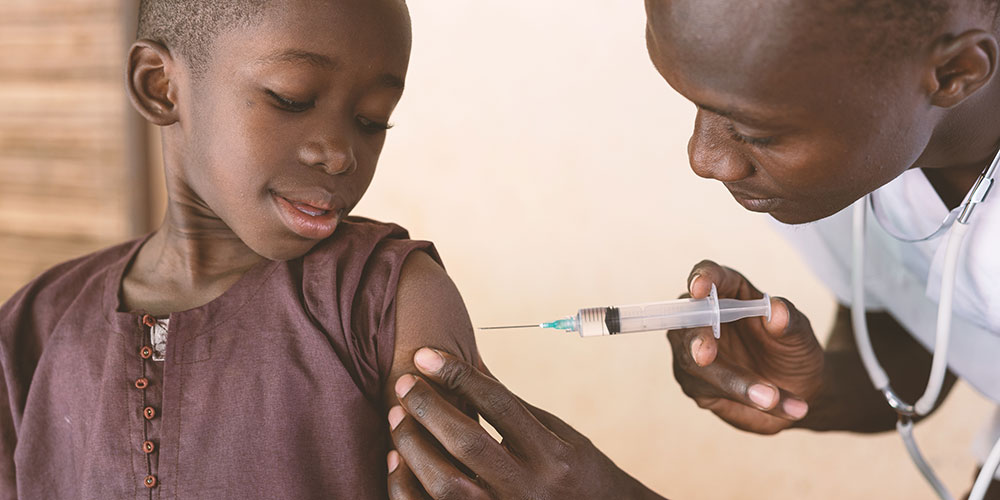154 million deaths averted: Contribution of vaccination over the past 50 years
In 1974, the World Health Organization launched its Expanded Programme on Immunization. Now, 50 years later, a study shows that an estimated 154 million deaths have been averted thanks to immunization. The study, led by Swiss TPH in collaboration with the WHO and numerous research organizations, is published in The Lancet.
03 May 2024
The World Health Organization (WHO) launched the Expanded Programme on Immunization (EPI) in 1974, inspired by the progress in eradicating smallpox through vaccination. Now, half a century later, WHO and researchers from a wide range of institutions have set out to quantify the program’s public health impact since its inception.
Among the study’s key findings is that immunization has prevented an estimated 154 million deaths worldwide since 1974, including 146 million deaths among children under age 5, including 101 million infants under age 1.
On average, 66 years of full health were gained for every death averted, amounting to a staggering 10.2 billion years of full health gained. Vaccination accounts for 40% of the observed decline in global infant mortality rates, with even higher contributions in regions like Africa, where it accounts for 52% of the decline.
In 2024, a child under ten years of age is 40% more likely to survive to their next birthday compared to a hypothetical scenario of no historical vaccination efforts. The benefits of vaccination extend well into late adulthood, with increased survival probabilities observed across age groups.
“These findings underscore the tremendous impact of vaccination on global public health over the past 50 years. Indeed, immunization works, saves life and makes our world a healthier place!” said Jürg Utzinger, Director of Swiss TPH and Professor of Epidemiology at the University of Basel. “We are delighted to have contributed to this landmark study through our expertise in mathematical modeling.” Swiss TPH researchers led the study in collaboration with a wide range of colleagues from WHO and research institutes.
The researchers used mathematical and statistical models to estimate the global and regional public health impact of 50 years of vaccination against 14 pathogens in EPI, including measles, polio and tuberculosis. For the pathogens modeled, they considered coverage of all routine and supplementary vaccines delivered and estimated the mortality and morbidity averted for each age cohort.
“This study is the most comprehensive analysis of the historical impact of vaccinations to date. Infant and child death rates have plummeted over the past 50 years, and our findings show that vaccination has been the single largest driver of this progress,” said Dr. Andrew Shattock, Senior Scientific Collaborator at Swiss TPH and the University of Basel and the study’s first author.
“While we should indeed celebrate this achievement, we must also be acutely aware that diseases such as measles, tetanus and tuberculosis continue to take lives. It is, therefore, of the utmost importance that we continue to invest in the most effective medical advancements, including existing and novel vaccines.”
This article is based on a press release by Swiss TPH.
Original publication
Andrew J Shattock et al.
Contribution of vaccination to improved survival and health: modelling 50 years of the Expanded Programme on Immunization
The Lancet (2024), doi: 10.1016/S0140-6736(24)00850-X



